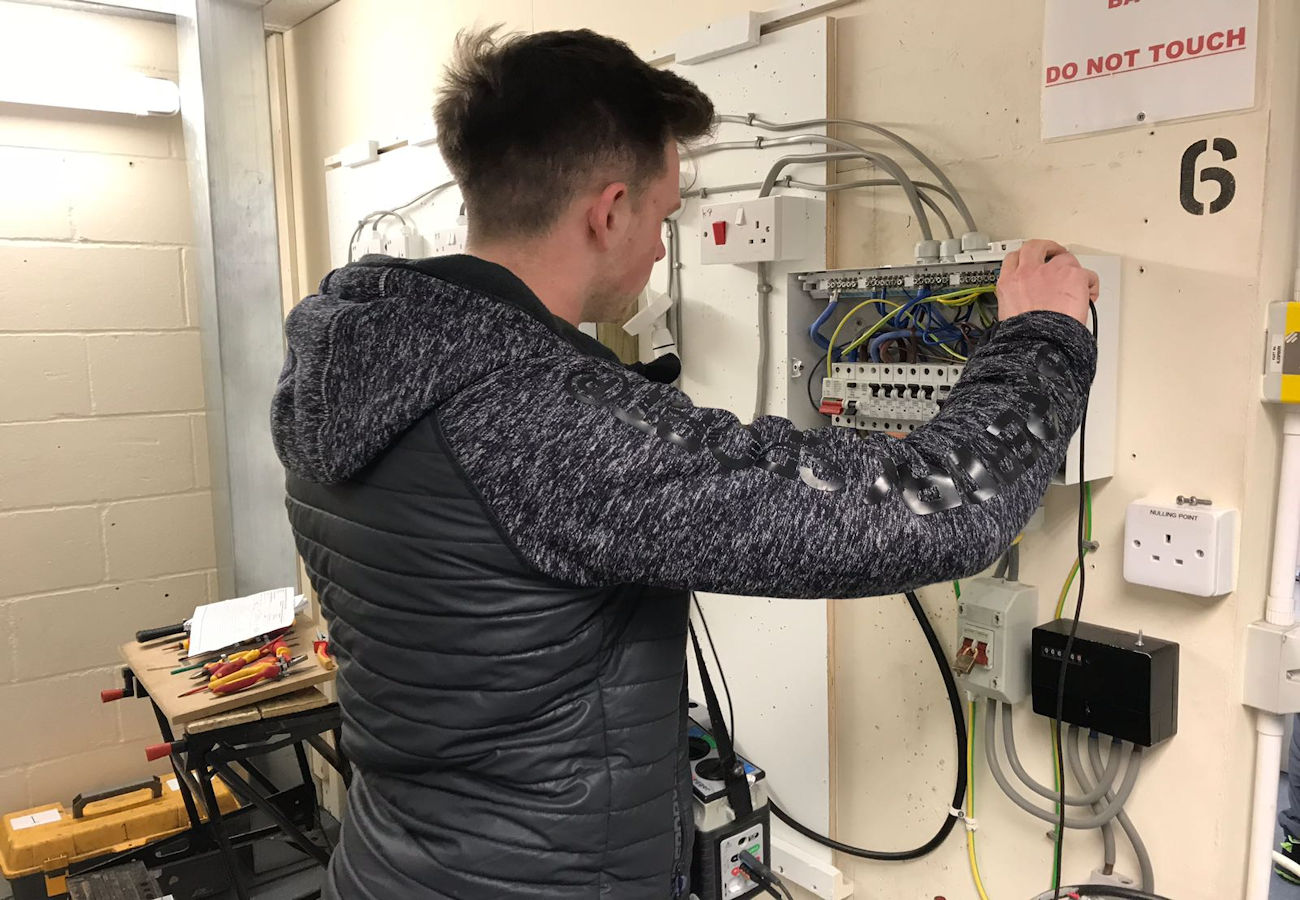We previously reported that in 2016, we saw 154 fatalities due to poor knowledge when handling electrical equipment. This startling figure came about after an increase in such figure from the previous year. As we attempt to increase the awareness of electrical safety, which is clearly demonstrated in our City & Guilds Accredited Electrical Courses, we should see this figure eventually vanish, however one huge hazard contributing to these statistics are fires caused by electrical failures at home! We advise the public to keep themselves up to date on how they can ensure a safe home and today we look at the most common areas of house fires as well as what you can do to help eliminate these hazards occurring in the first place!
Electrical Safety First reported that 59% of domestic house fires were caused by electrical failure. Not taking the time to consider electrical safety is one cause with miss using appliances and faulty electricals being other causes.
Why is it that the majority of household fires occur due to such reasons and where within the household do they occur the most? Here’s the stats!

As shown on the right, 39% of such incidents were caused by the misuse of equipment and 29% were caused by faulty appliances. These are areas that can easily be avoided if we all take the time to ensure electrical safety comes first, something that shouldn't only be made aware to those studying electrical courses. Here’s a few tips on how we can stay safe when handling electrical appliances.
- Always follow the manufacturer’s instructions when installing, using and maintaining electrical appliances.
- Don’t leave washing machines, tumble dryers or dishwashers running overnight or when you're out.
- If your appliance begins making a strange noise or isn’t working properly, don’t ignore it. If you think there might be a problem, always unplug it and contact the manufacturer or a qualified repair technician.
- Do regular checks of plugs and sockets for burn marks, sounds of ‘arcing’ (buzzing or crackling), blown fuses, circuit-breakers tripping or if it feels too hot to touch.
- Don’t place a fridge or freezer near cookers, radiators, or in direct sunlight, as it will have to work harder to maintain the required internal temperature.
- Clean behind your fridge and freezer regularly to keep lint and dust from building up, and make sure there is enough room behind the appliance for air to circulate freely.
- Clean your oven and hob regularly and always clear spillages immediately to avoid a build-up of food debris and fat which is a fire risk.
- Make sure that you only put things in the microwave that are clearly marked as microwave-safe.
- Always register your electrical appliances so that the manufacturer can contact you if there’s a problem.
 Such topic forces us to ask ourselves when was the last time we had our homes tested for electrical safety? For the most of us, this is a question we wouldn’t know how to answer as so many of us don’t even know when we would need such inspection. The Electrical Safety Foundation presents the following four times we should seek a fully qualified electrician to carry out such inspection:
Such topic forces us to ask ourselves when was the last time we had our homes tested for electrical safety? For the most of us, this is a question we wouldn’t know how to answer as so many of us don’t even know when we would need such inspection. The Electrical Safety Foundation presents the following four times we should seek a fully qualified electrician to carry out such inspection:
- If you are purchasing a home (new or older)
- If your home is more than 40 years old
- If you are installing a new appliance (think washer, dryer, refrigerator, entertainment system, home office, etc.)
- If your home is undergoing renovations
Seem reasonable? Many people overlook the need to do so until its too late. Such inspections are becoming increasingly common as the importance of electrical fire safety is finally getting the recognition it deserves.
Able Skills consider public safety at the heart of all electrical courses, ensuring it is re-enforced with all our students. With such topic being an essential part to becoming a fully competent tradesmen, some of the courses below (as well as many others) can help solidify your understanding:
Due to high demand Able Skills are proud to announce that we have added a new Weekend City & Guilds Level 2 Electrical Course starting in July! Please note that we offer home study options too!
Want to see exactly where our electrical courses are held? Come and see for yourself! Our first class training centre based in Dartford welcomes anyone anytime between 8.30 and 4.30 any day of the week. We hope to see you soon.